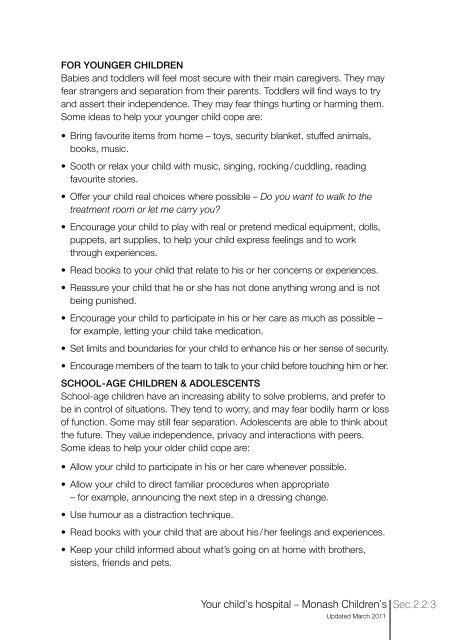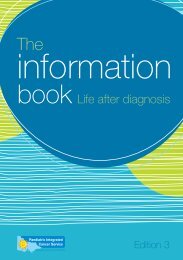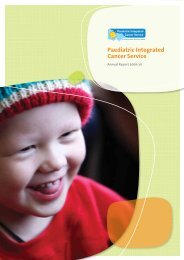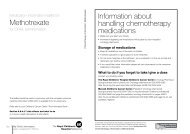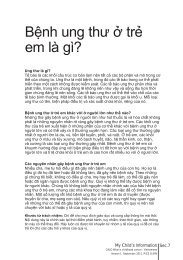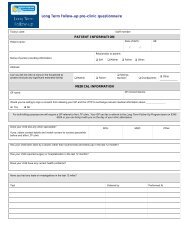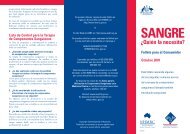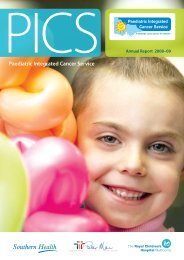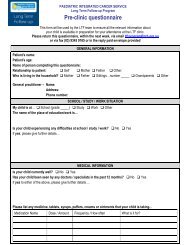The information book - Paediatric Integrated Cancer Service
The information book - Paediatric Integrated Cancer Service
The information book - Paediatric Integrated Cancer Service
You also want an ePaper? Increase the reach of your titles
YUMPU automatically turns print PDFs into web optimized ePapers that Google loves.
FOR YOUNGER CHILDREN<br />
Babies and toddlers will feel most secure with their main caregivers. <strong>The</strong>y may<br />
fear strangers and separation from their parents. Toddlers will find ways to try<br />
and assert their independence. <strong>The</strong>y may fear things hurting or harming them.<br />
Some ideas to help your younger child cope are:<br />
• Bring favourite items from home – toys, security blanket, stuffed animals,<br />
<strong>book</strong>s, music.<br />
• Sooth or relax your child with music, singing, rocking / cuddling, reading<br />
favourite stories.<br />
• Offer your child real choices where possible – Do you want to walk to the<br />
treatment room or let me carry you?<br />
• Encourage your child to play with real or pretend medical equipment, dolls,<br />
puppets, art supplies, to help your child express feelings and to work<br />
through experiences.<br />
• Read <strong>book</strong>s to your child that relate to his or her concerns or experiences.<br />
• Reassure your child that he or she has not done anything wrong and is not<br />
being punished.<br />
• Encourage your child to participate in his or her care as much as possible –<br />
for example, letting your child take medication.<br />
• Set limits and boundaries for your child to enhance his or her sense of security.<br />
• Encourage members of the team to talk to your child before touching him or her.<br />
SCHOOL - AGE CHILDREN & ADOLESCENTS<br />
School-age children have an increasing ability to solve problems, and prefer to<br />
be in control of situations. <strong>The</strong>y tend to worry, and may fear bodily harm or loss<br />
of function. Some may still fear separation. Adolescents are able to think about<br />
the future. <strong>The</strong>y value independence, privacy and interactions with peers.<br />
Some ideas to help your older child cope are:<br />
• Allow your child to participate in his or her care whenever possible.<br />
• Allow your child to direct familiar procedures when appropriate<br />
– for example, announcing the next step in a dressing change.<br />
• Use humour as a distraction technique.<br />
• Read <strong>book</strong>s with your child that are about his / her feelings and experiences.<br />
• Keep your child informed about what’s going on at home with brothers,<br />
sisters, friends and pets.<br />
Your child’s hospital – Monash Children’s Sec.2.2:3<br />
Updated March 2011


